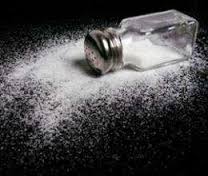Scientists have shed light on why some people crave salty food, even when they know it can seriously damage their health.
The study helps researchers understand how the brain controls our appetite for salt, and how it impacts on blood pressure levels.
The findings suggest it could soon be possible to offer heart disease patients a medicine that helps them manage their salt intake and curb the adverse effects of high blood pressure.
Scientists modified mice to remove a gene in a small number of cells in the mouse brain. This gene is known to be linked with high blood pressure in humans but the way this is controlled is unclear.
Removing the gene caused the mice to develop a strong appetite for salt — when offered a choice of normal drinking water or saltwater, they consumed three times more saltwater than unmodified mice.
The trial also showed that the modified mice went on to experience high blood pressure for as long as they drank saltwater. When the saltwater was removed their blood pressure returned to normal.
The findings suggest that the gene plays an important role in controlling both the appetite for salt, and its effect in raising blood pressure, scientists say.
Dr Matthew Bailey, said: ” we routinely eat much more salt than our bodies need. For most people this is bad for our heart, blood vessels and kidneys. Our study shows that we have a genetic drive to consume salty food. Understanding how this process works may help us reduce the amount of salt we eat and make it easier for people to follow low-salt diets.”
Source: Science daily
N.H.Kh

